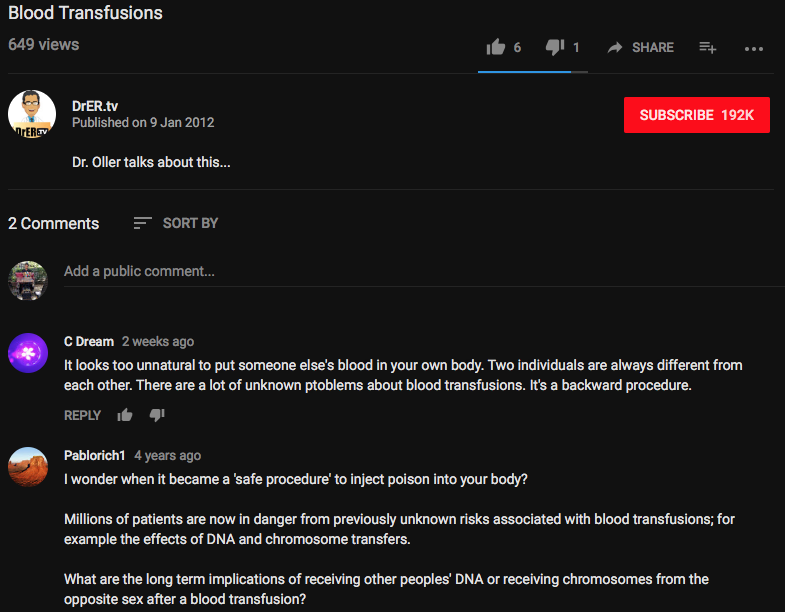MinerJ
Members
-
Joined
-
Last visited
-
Country
United Kingdom
Everything posted by MinerJ
-
Presence of H antigen
Hi Malcom, Thanks again for your swift response, has certainly helped me. Came across auto-anti-HI almost a month ago, but I don't know if we performed the test properly to differentiate between auto-anti-H and auto-anti-HI, but it was the BB manager's decision, and as procedure doesn't change on how we treat both, I guess it doesn't matter. CheerS
-
Presence of H antigen
Hi All, I hope someone can help me with some clarification. I was reading about the presence of H antigens in different ABO blood group patients, but I am getting different answers depending on what I read. Transfusion Medicine and Hemostasis- Clinical and Laboratory Aspects- 2nd Edition mentions O > A2 > B > A2B > A1 > A1B with O having the most, whereas BBTS Introduction to Transfusion Practice-6th edition mentions O > A2 > A2B > B > A1 > A1B. Maybe it doesn't really have a big impact to my routine work, but it is still good to be in the know. Any thoughts would be welcome. Regards, Jermin
- Educating the Masses
-
M antigen and antibody
Decided to revisit the post, just because I was trying to find some information of ABO IgG antibody causing agglutination. I have yet to see any literature which mentions this, so I was hoping you, or anyone else, can explain to me how this is possible? Is it a similar situation like M antigen being present in the extreme end of glycophorin A? Bonus point for explaining it to me like I am a 5-year-old
-
Guidelines for the Estimation of Fetomaternal Haemorrhage
Hi gagpinks, Thank you for your reply. I think I may need to clarify my queries I was referring to the guidelines set by BSH. We do not use a manufacturer supplied foetal spiked red cell reagent. We create our positive controls, and the reagents used for fixing and staining Kleiharuer films do not mention how to go about making the slide, just how to stain them. Again, I was referring to the BSH guidelines on storing controls, not maternal sample. I see what you mean. I will check the ISO manual and see what I can derive from that. Thank you, Jermin
-
Guidelines for the Estimation of Fetomaternal Haemorrhage
Hi Malcolm, As always I am always glad to see your replies. Thank you for educating me about the Rh blood group system. I have since read the BBTS chapter on Rh Blood group system and made some amendments to my specialist portfolio. I have always been good at being told what to do, but never thought to ask why, an issue which I aim to rectify. As to answering my FMH estimation query, I am again grateful for you comprehensive explanation. It has been beneficial, and I feel more prepared if I come across this scenario. Cheers, Jermin
-
Guidelines for the Estimation of Fetomaternal Haemorrhage
I was reading the BSH Guidelines for the Estimation of Fetomaternal Haemorrhage, and I had a few questions: 7.2 Slide Preparation In my current workplace, we do not dilute the sample, and my previous workplace did. I could not see a significant difference on the slide that was made and found them both equally adequate, but I was wondering if other have any input on them 7.3 Controls We currently prepare the control slide a week in advance and not fix or stain them, until required for batch testing. I have checked all the slides after it had undergone AE test, and all of them had been adequate. I was wondering if there is something which we are overlooking? These were the only things that were nibbling at the back of my mind after going through the guidelines. If someone could put it to rest, I will be grateful. Bonus Question I was wondering if transfusing Rhesus D Negative pregnant women have any implication on the FMH screening/ quantification, and what they would be? Cheers, Jermin
-
Siemens Coag Instruments Question
I have heard of IL Tops, very popular in the north of England I believe. Always wanted to have a crack at it
-
Siemens Coag Instruments Question
Worth going for CA 2500, very neat and works like a gem. But I must say, you will probably miss your Stago. We moved from Sysmex to Stago, and although there were some concern and teething issues (mainly the way in which the samples are loaded) we just love how much easier it is to get things calibrated, and reagents have much longer in-use time.
-
Beckman DxH
Our laboratory had Beckman DxH for some years, but always had issues with them, and an engineer was called out almost every week. Since switching to Sysmex XN, it has been a doddle. Love the interface, and works without a glitch (for almost a year). Worth considering the Sysmex over the Beckman
-
Biorad IH 1000?
Bit late in the game, but we use BioRad IH1000 so if any advice needed, I can try and help
-
M antigen and antibody
Hi Malcolm, Thank you for explaining it to me clearly, always look out for your replies in posts. It has been a great help, and I have already gained a lot of insight by going through the forum thanks to you and other contributors. I will ensure that I appreciate what little knowledge I do have a bit more in the future. Jermin
-
What is the antibody?
Thanks a lot for sharing this Malcolm. Would love to see more of this thing sort of head-scratcher case studies being discussed on Case Study section
-
M antigen and antibody
Hi All, First time posting so not sure if this is the right place for this general enquiry. I have read in different literature about anti-M antibody and its class, but none seem to agree with one another. Some say that anti-M antibody is mainly IgM class, others that it is primarily IgG, and others mention that it is even. So anyone knows what the real answer is? Also, I have read that anti-M IgG class is capable of direct agglutination. I am aware that the M antigen is a high-frequency antigen on the red cell, but how would this resolve the issue which IgG class have in spanning across the zeta potential of the red cell to cause agglutination? And if someone can explain to me how this sometimes causes discrepancy in the reverse group, I will also be grateful (I apologise for my lack of knowledge, just starting my specialist) Regards, Jermin



